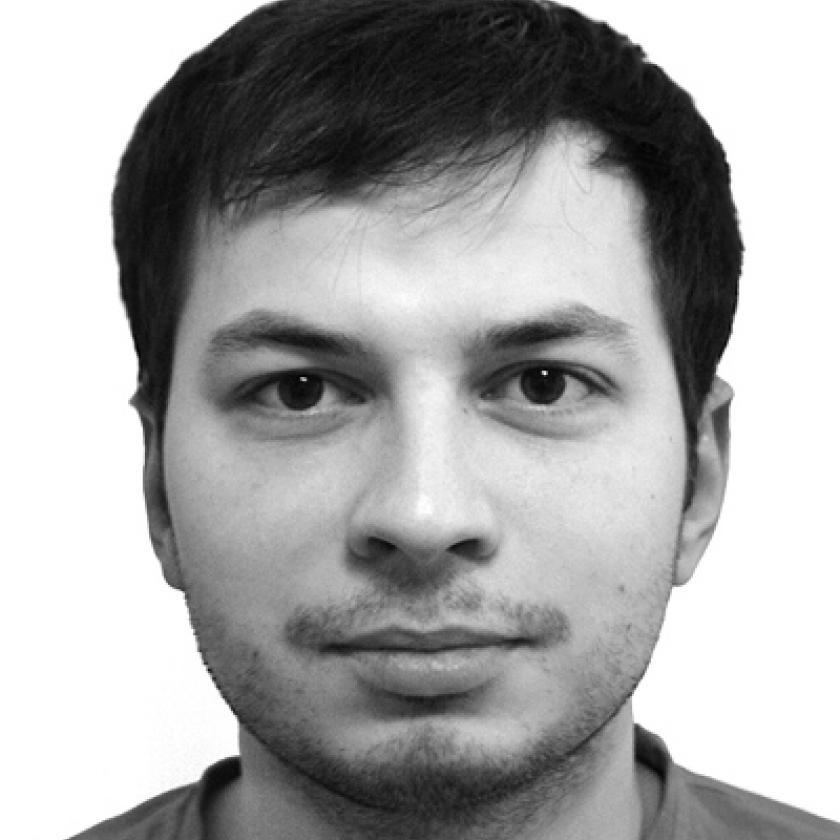TLU calender 2021: What’s up Lecturer of Serious Games Mikhail Fiadotau?
TLU 2021 calender’s focus researcher in August is Lecturer of Serious Games at School of Digital Technologies Mikhail Fiadotau. We will ask him what are his projects right now and how does he spend his free time.

What are some of the research projects and topics you are currently working on?
One recent example is Methodyca, a digital game about research methods created by faculty and students in the Digital Learning Games program. We released the game in spring 2021 and, since then, have been piloting it in research methods classes at Tallinn University.
An upcoming project that is particularly close to my heart is called Nordic Alliance for Sustainability in Gaming and is a collaborative effort between six universities in Estonia, Finland, Sweden, Denmark, and Iceland that offer courses and programs related to game development and to using games in education.
Simply put, the premise is that videogames are in an ambiguous position when it comes to sustainability. On the one hand, games have had a sizable environmental footprint: playing games on computers, game consoles, and smartphones consumes a lot of power; gaming devices are manufactured using rare-earth metals and other non-renewable elements; these devices are also a nightmare to recycle. This problem is particularly acute since, for the past three decades at least, the game industry has been pushing players to constantly replace their hardware in order to be able to run the latest, and presumably more advanced, games. This is not to mention that the game industry is itself not necessarily a very sustainable place to be, as many studios rely on gig workers, crunching (unpaid overtime work), and struggle with inclusivity and diversity both in the workplace and their games.
But it doesn’t have to be this way. There are ways to both play videogames and create them more sustainably, in both the environmental and cultural sense. And, as institutions teaching future game professionals and researching gaming culture, we feel a responsibility to encourage our students to consider this and to reflect on this more in our own work. To this end, we’ll be organizing seminars and a game jam dedicated to sustainability in gaming and seeing where we can go from there. I would gladly point you to a website that provides more information about the project, but the truth is we’re still working on it as the project doesn’t properly start until September.
What inspires you in life?
I’m inspired by good stories in whatever medium, whether it be books, movies, videogames, performance art, or folklore. To me, researchers, too, are storytellers, who construct narratives to convey their ideas—but also to make sense of the world (much like how people have relied on stories to make sense of the world since time immemorial). Some of my favorite researchers are fantastic writers: game scholars Ian Bogost and T.L. Taylor are two great examples.
What are your hobbies and interests outside of academia?
It won’t come as a huge surprise that I enjoy playing and making videogames (not only of the educational kind). Creating games has sometimes been therapeutic for me, as was the case with Fake Your Own (Re-)Election, a game I made following the political crisis in my native Belarus.
I also love traveling, which has been a bit tricky to do for the past two years—but, on the plus side, the pandemic has provided an occasion for my wife and me to explore Estonia more, and we have discovered many great places, from the Panga Cliff on Saaremaa, to the waterfall in Keila-Joa, to the mining museum in Kohtla-Nõmme.
I’m also passionate about music. I won’t specifically mention any genres, as I’m something of a musical omnivore. I’ve written music for some of the videogames I’ve worked on, and I hope to have more time to spend on music-making someday.
In your view, where is science heading?
I don’t have the self-confidence to give a general answer to that. But I will point out two trends that I’m hoping we’ll be seeing more of. One is a shift away from monodisciplinarity: the idea that researchers must specialize in a single narrow field. This certainly has its uses, but there is also so much potential in exploring intersections between different fields and disciplines. My own work lies somewhere between cultural studies, design, media studies, and computer science, to name a few. And one of the most enjoyable things in my work is the opportunity to collaborate with scholars from different fields, who also have diverse interests. I appreciate that Tallinn University is making an effort to promote such interdisciplinary collaboration through research and development projects, LIFE courses, and other initiatives.
The other thing I’m hoping to see is more diversity in the research community itself. For decades, large groups of people have had limited access to academia: women, people of color, sexual minorities, people with disabilities, the economically underprivileged, and so on. This has certainly improved today compared to a century ago, but there is also much room for further improvement, including in game studies. Having more diverse voices is a huge boon for academia itself, since it provides an influx of fresh ideas and perspectives, and I hope there will be more recognition of the hurdles people face when trying to enter academia, and more initiatives to include groups that have been underrepresented in it. Incidentally, the exact same point applies to the game industry too.